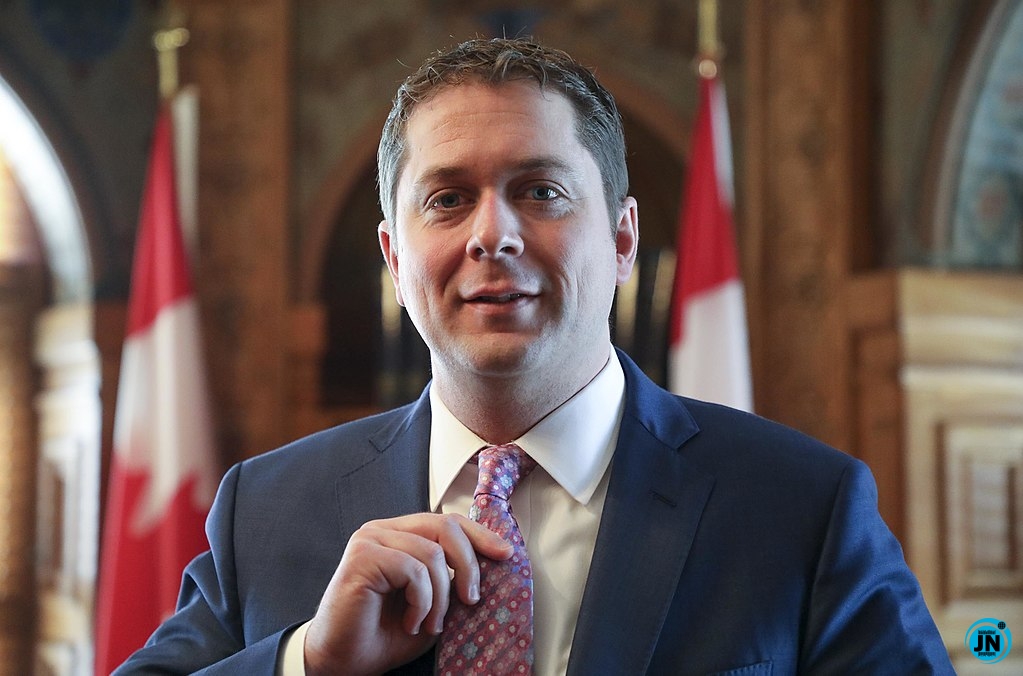Canadian politician Andrew Scheer, a member of Canada’s House of Commons representing Regina–Qu’Appelle and a former leader of the Conservative Party, has stirred international reactions after openly accusing the world of turning a blind eye to what he termed the “systematic persecution of Christians” in Nigeria. His remarks, which have since gone viral online, have reignited debates about ongoing religious violence, extremism, and the global community’s role in responding to humanitarian crises in Africa’s most populous nation.
In his passionate address, Scheer alleged that Boko Haram and allied militias are carrying out a coordinated genocidal campaign against Christian communities across Nigeria. According to him, extremist groups have intensified their violent attacks, which include mass killings, abductions, arson, and the destruction of places of worship. He further cited shocking statistics, claiming that over 7,000 Christians have been killed this year alone, while more than 3.5 million others have been displaced from their homes and communities.

Speaking both on the floor of Parliament and in a widely circulated video on X (formerly Twitter), Scheer highlighted that on average, three churches are destroyed daily in Nigeria, leaving many believers with no choice but to worship in secret or inside the ruins of burned-down sanctuaries. He lamented that despite these atrocities, the international community has largely remained silent, showing little interest in addressing the plight of Nigerian Christians. “The world has largely ignored the persecution of Christians in Nigeria: 7,000 killed, 3.5 million displaced, and three churches destroyed every day. It’s time to break the silence, raise awareness, and support those enduring unimaginable suffering,” Scheer emphasized.
Recalling Boko Haram’s notorious history, Scheer reminded lawmakers of incidents such as the 2014 kidnapping of Chibok schoolgirls, the execution of civilians, and the burning alive of entire families. He warned that without stronger global intervention, the cycle of violence will continue, deepening the humanitarian crisis in Nigeria and destabilizing the wider region.
The world has largely ignored the persecution of Christians in Nigeria: 7,000 killed, 3.5 million displaced, and three churches destroyed every day.
It’s time to break the silence, raise awareness, and support those enduring unimaginable suffering. pic.twitter.com/9S6649YLVf
— Andrew Scheer (@AndrewScheer) October 2, 2025
Scheer’s remarks received international attention and were echoed by U.S. comedian Bill Maher, who on his HBO show Real Time last month described the violence in Nigeria as “genocide.” Maher cited alarming figures, alleging that more than 100,000 Christians have been killed in Nigeria since 2009 and at least 18,000 churches have been destroyed over the years. His comments resonated strongly in U.S. political circles, with Congresswoman Nancy Mace publicly thanking him for raising awareness and urging the U.S. government to do more in addressing the crisis.
Nigerian Government’s Rebuttal
In response, the Nigerian government has firmly rejected claims that Christians are being specifically and systematically targeted. The Minister of Information and National Orientation, Mohammed Idris, issued a statement on Sunday dismissing such narratives as “false, misleading, and divisive.” According to Idris, extremist groups such as Boko Haram and bandits do not discriminate in their attacks, targeting Muslims, Christians, and even individuals with no religion. He stressed that the government is actively engaged in combating terrorism and insurgency across the country while working to protect all communities regardless of faith.
The minister further accused foreign commentators of politicizing Nigeria’s internal security challenges, warning that exaggerated claims risk undermining national unity and the country’s counterterrorism efforts. He called for balanced reporting and international support for Nigeria’s ongoing fight against insecurity, rather than what he described as “alarmist and one-sided narratives.”
The contrasting positions between Canadian lawmaker Andrew Scheer and the Nigerian government underscore the complexity of Nigeria’s security crisis, which has both religious and socio-political dimensions. While many international voices describe the situation as targeted persecution of Christians, Nigerian officials continue to insist it is a broader challenge of terrorism, banditry, and organized crime affecting citizens across religious and ethnic lines.